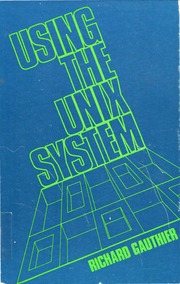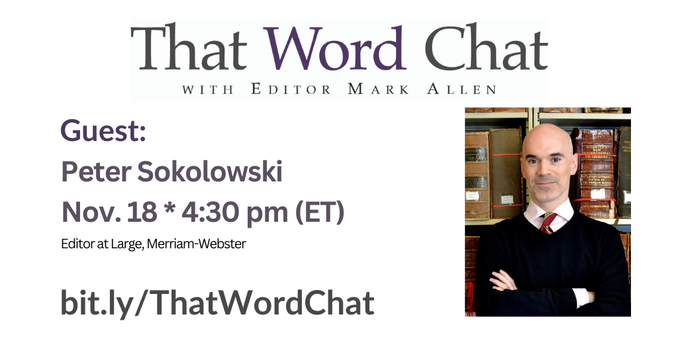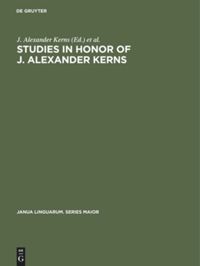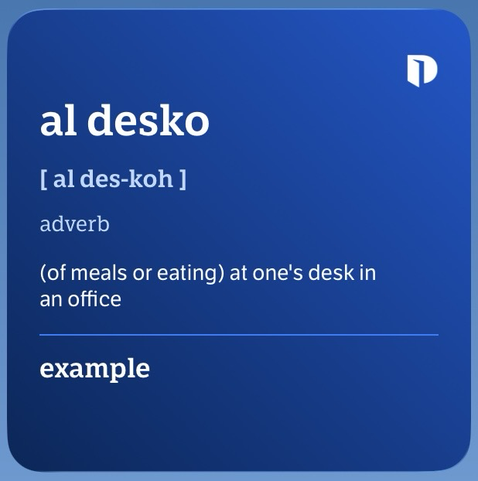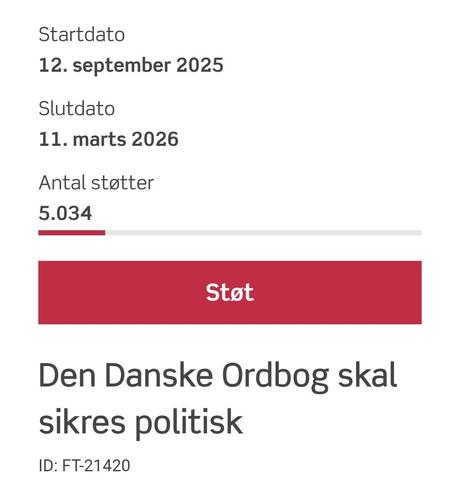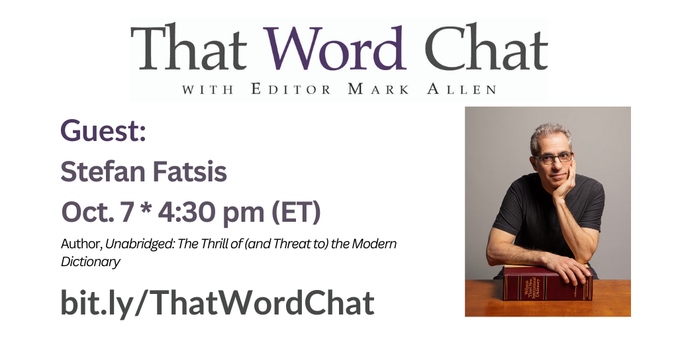“When I use a word, it means just what I choose it to mean—neither more nor less”*…
In an piece adapted/updated from his recent book, Unabridged: The Thrill of (and Threat to) the Modern Dictionary, Stefan Fatsis explores process(es) that determine our “Word[s] of the Year”…
Thirty-five years ago, the late English professor Allan Metcalf [see here] had an idea. “I was thinking that Time magazine has its Person of the Year,” he told me, “and why can’t we do for words what Time did for people?”
Metcalf assumed that the language pros at the American Dialect Society, which held the first WOTY vote in 1990, would nominate words “headed straight for our everyday vocabulary and secure places in the dictionaries.” But he misjudged human behavior. Lexicography is sober research committed quietly and alone. Word of the Year is a key party: You can’t be sure who you’ll go home with. The inaugural winner, bushlips, meaning “insincere political rhetoric,” barely lasted a news cycle.
After some eye-rolling, criteria were established: Was the word completely new? Had it been used before in other contexts? Was it “a major focus of human activity or behavior” in the previous year? Did it have staying potential? WOTY could be brand-new or newly popular. But it had to have been used widely and reflect the zeitgeist of the annum gone by.
Today there are around a dozen Words of the Year (Word of the Years?) in English, and WOTY season runs from late fall to early January. Dictionaries duke it out for attention, some touting their scientific methodology for picking a winner, others offering a nebulous alchemy of number-crunching and feel. The dialect society, the WOTY OG, conducts a live popular vote in a hotel ballroom at a language conference, the outcome based more often than not on vibes alone.
No matter the formula, selecting one word to define a year is serious business. It’s about the sharp lines of language and usage, how society adopts and spreads new terminology, and, increasingly, the dramatic ways that social media influence the way we write, talk, and interact. As a culture we’re forever searching for ways to make sense of our big, complicated, confusing world. WOTY neatly boxes up 365 days in a single, simple word (technically a “vocabulary item”; phrases, compounds, and affixes also are eligible). It’s media catnip and hot-take gold.
“It gives people this sense of ownership,” says New York Times Wordplay columnist Sam Corbin, who’s writing a book about what she calls the WOTY-verse. “We have always been exploring new ways to fill gaps in vocabulary but also respond to culture with words. It’s delicious.”
For the dialect society, which crowns a champ last, the job is so weighty that it takes two days to pick a winner—nominations one night, balloting the next. I’ve participated in around a decade’s worth of votes. I check my journalistic objectivity at the door and do my linguistic duty. Every year, a pattern emerges. A few words totally surprise, some a product of Gen Z (or Gen Alpha) or gamer culture that’s bypassed middle-aged me (hello, skibidi, a 2023 nominee). Recency bias is common—as you’d expect in a vote of trending language. So is observer bias, with crowd approval often directly proportional to shock value (the suffix -ussy winning in 2022; rawdog in 2024).
Looking at the victorious words from a distance, you might nod in recognition of a specific event (chad, 2000; bailout, 2008), cringe at terminology that dates you (World Wide Web, 1995), or wonder what the hell people were thinking (to pluto, a verb meaning to demote, as in what happened to Pluto when it was reclassified from full-fledged to dwarf planet, 2006). But that’s the genius of Word of the Year. We’re suckers for media-driven argument engines. It’s a short walk from “LeBron is better than Jordan!” to “They should have picked rizz!”
Since around 2010, when the newsy app defeated the funner nom—as in the onomatopoetic nomnomnom, to connote eating—younger voters (mostly grad students and junior faculty) have tilted the conversation away from dictionary-type words toward social media and online slang. “It’s generally who makes the best argument in the room, and you can’t predict that,” says Ben Zimmer, chair of the society’s New Words Committee.
A couple of votes stand out for me, for linguistic and cultural reasons. One was in Austin, Texas, in January 2017. Donald Trump had just been elected president, and nearly half of the WOTY nominees were related to him: post-truth, basket of deplorables, unpresidented, alt-right, fake news, locker-room banter, yuuuge. But the mood was ominous, not apocalyptic. It was, after all, pre-inauguration, pre-Charlottesville, pre-impeachments, pre-pandemic, pre-2020 election, pre-January 6, pre-felony indictments, pre-felony convictions, pre-assassination attempts, pre-2024 election, pre-ICE raids: pre-everything.
WOTY promised closure, and everyone was down for that. In the middle of the room, Dan Villareal, a linguistics postdoc, stood up. “Okay,” he said. “It’s 2016. Dumpster fire?” Earlier in the evening, the fire emoji, and also the trashcan and fire emojis used together to represent dumpster fire, won the emoji category. One of the older attendees had asked what dumpster fire meant. “It is used to describe an incredibly catastrophic situation,” Zimmer explained. “Like some people think 2016 was one long dumpster fire.”
Normalize, post-truth, and the fire emoji also got WOTY nominations—the first time an emoji had made the final group. So did woke. “Granted it’s been around a while,” cherubic Stanford linguist John Rickford, a titan in the field, said. “But only if you stay woke can you put out the dumpster fire.” The house was brought down, and I figured it was game over. But then another postdoc, Nicole Holliday, lobbied against the word—“because it was appropriated from the Black solidarity movement in the 1960s and I think that we are so late to this game and last year was anything but woke,” she said. Dumpster fire beat woke in a runoff.
The journey of the two words since then demonstrates WOTY’s unpredictability and its historical value. Dumpster fire was relatively new and the WOTY early-warning system worked; Merriam-Webster added it just 14 months later. Woke, by contrast, would take a far more disturbing linguistic ride. The dialect society voters who (literally) snapped their fingers in approval for woke would watch it get twisted by political commentators and a demagogic right-wing into what was tantamount to a slur.
The dialect society’s last two votes also feel, in hindsight, like markers. When the group gathered in New York to pick the 2023 winner, Joe Biden was president and Trump was a long shot to return to power. The Israel-Hamas war drew a nomination of ceasefire, but the Barbie movie, AI, and online slang dominated the discourse. The most spirited debate was over a word that didn’t appear in Sam Corbin’s Times write-up of the event: cunty, “having an audaciously exceptional appearance or attitude.”
The winner straddled the line between serious and fun: enshittification, meaning a gradual deterioration in the quality of internet platforms like Facebook, Twitter, and TikTok. The word captured the growing frustration with internet subservience and AI overlords. The 2024 vote, in Philadelphia, also was relatively apolitical; maybe we were all terrified about Trump’s impending inauguration. Rawdog was subversive and fun. The runner-up, sanewashing, was doomy, but more of a criticism of how the media handled Trump than of Trump himself.
Kicking off the 2025 WOTY campaign, Dictionary.com eschewed the perilous state of the union and opted for the ubiquitous (and annoying, to adults) Gen Alpha nonsense catchphrase 67 (also written 6-7 or six seven). The British dictionary Collins went with the AI term vibe coding, which it said “captures something fundamental about our evolving relationship with technology.” Other dictionaries are likely to lean into our quick descent into competitive authoritarianism and choose an existing word that was of the moment and looked up a lot: totalitarian, fascism (for which former Dictionary.com editor John Kelly made the case), deportation, crackdown, tariff, shutdown. (Surreal and unprecedented, fyi, have already had a turn; chaos is available.)
For the American Dialect Society voters, current-events words need to capture the seriousness of the political moment, possess some cultural stickiness, and be lexically dynamic. Language writer Nancy Friedman, who tracks potential WOTYs on her Substack, Fritinancy, flagged DOGE as a verb meaning to fire or purge and as a “combining form,” as in DOGEboys or DOGEbags. Various tariff spinoffs—such as tariffied, which has appeared in lots of headlines—also show promise. Other candidates unite the sober and the clever: Kavanaugh stop, broligarchy, trolligarchy, sadopopulism.
Brianne Hughes, a linguist and writer, maintains a running list of 2025 WOTY hopefuls on the alt-dictionary site Wordnik—around 250 of them so far, including #NoKings, Coldplayed, clanker, aura farming, Straw Hat Pirates, Gen Z stare, and chopped unc, a combo of the internet slang chopped and unc. (Some late additions: Young Republicans, in the wake of a Politico story revealing racist banter in a GOP group chat; Trumpstein files; and Gestapo Barbie, a derogative nickname for Homeland Security Secretary Kristi Noem.)
“Choosing the Word of the Year is No Easy Feat“- the history of who and how, from @stefanfatsis.bsky.social in @literaryhub.bsky.social
See also Fatsis on the precarious status of the dictionary: “I was reading the dictionary. I thought it was a poem about everything.”
* Lewis Carroll (Humpty Dumpty in Through the Looking-Glass)
###
As we contemplate coinage, we might recall that it was on this date in 1964 that The Animals recorded “Don’t Let Me Be Misunderstood,” which had been first recorded by Nina Simone earlier that year. It was the first single released from their album Animal Tracks (followed by “We Gotta Get Out of This Place”).
source
https://youtu.be/_2sz_YwwwQ4?si=RnQ69hLVwmkIqRWl
#blues #bluesRock #culture #dontLetMeBeMisunderstood2 #history #language #lexicography #linguistics #literature #music #nokings #politics #rock #society #theAnimals #wordOfTheYear #words
